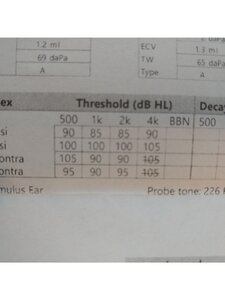- Aug 5, 2019
- 1,852
- Tinnitus Since
- 05/2019
- Cause of Tinnitus
- Autoimmune hyperacusis from Sjogren's Syndrome
LindaS, that's so sweet of you. I'm having a hard time with outlook right now. I haven't found one success story that resembles my problem (in terms of presentation) so viewing certain things can be bitter sweet. Nature is beautiful, and in fact, the last trip I took with my parents was in nature. I feel like I've died and every day I'm seeing things that I'll never experience again. Nature is probably something I'll be able to experience again, but other things I'm not sure.@Zugzug
Don't know how to do the quote thing. Your comment... "at least I could breath, exercise, go for walks,.... " touched my heart. I'm sorry you are unable to go for walks.
It's definitely not the same, but here is a photo where one can take an imaginary walk. A computer file of images such as this, with lakes, mountains, streams, cabins in the woods, night skies, etc.... may not be the same as the real thing but may bring some comfort. I know it does for me.
View attachment 39916

 Member
Member